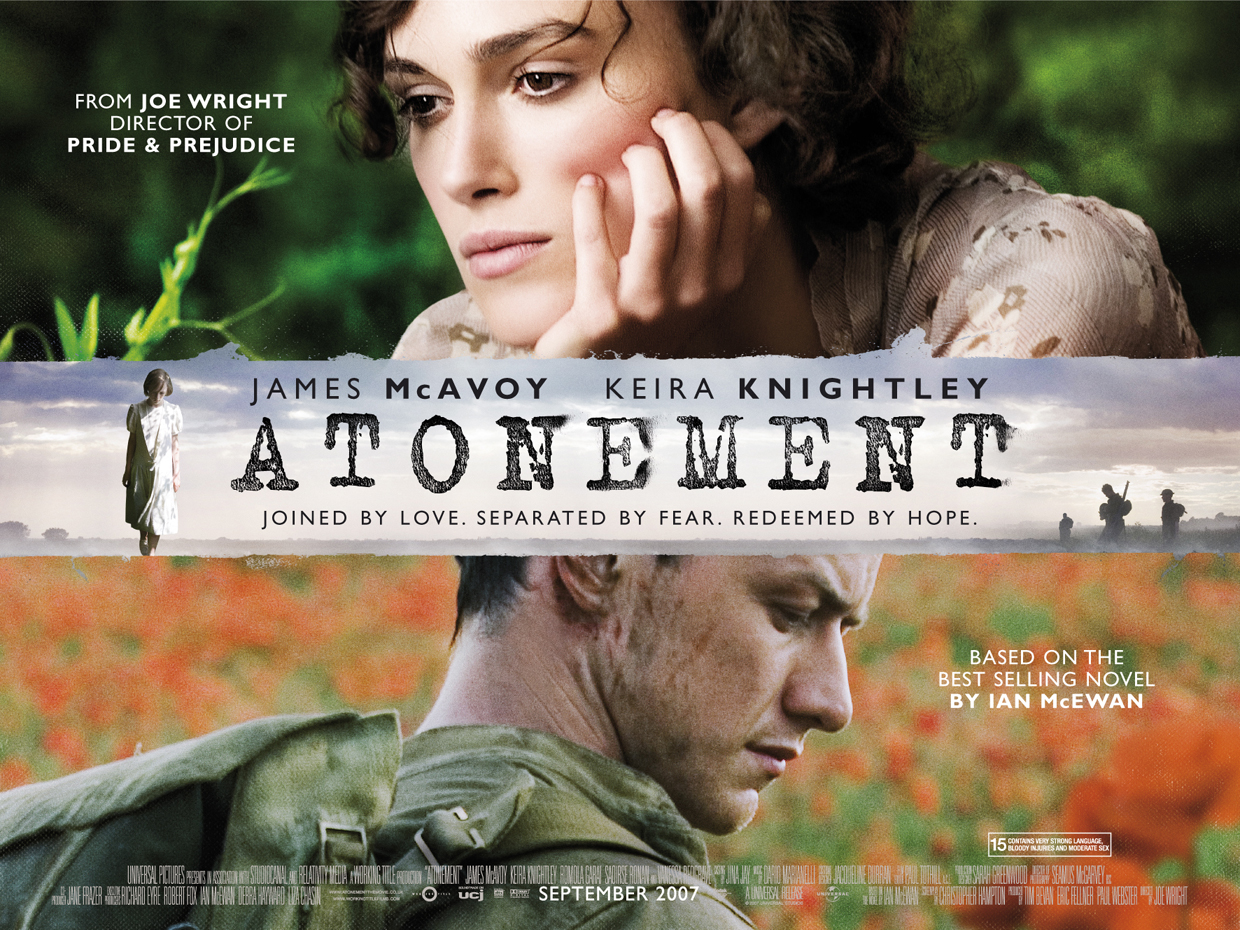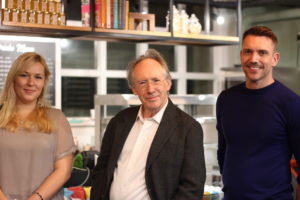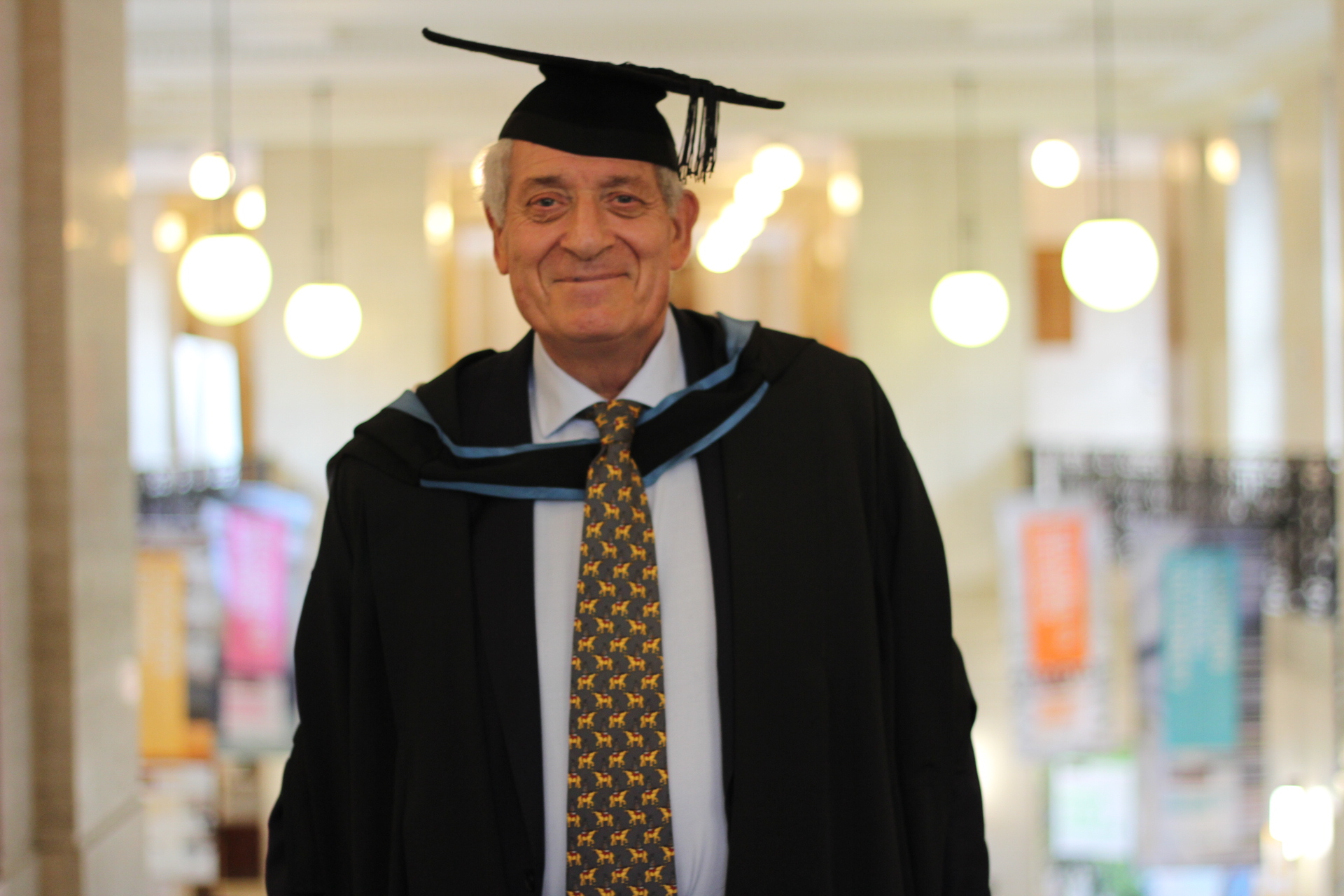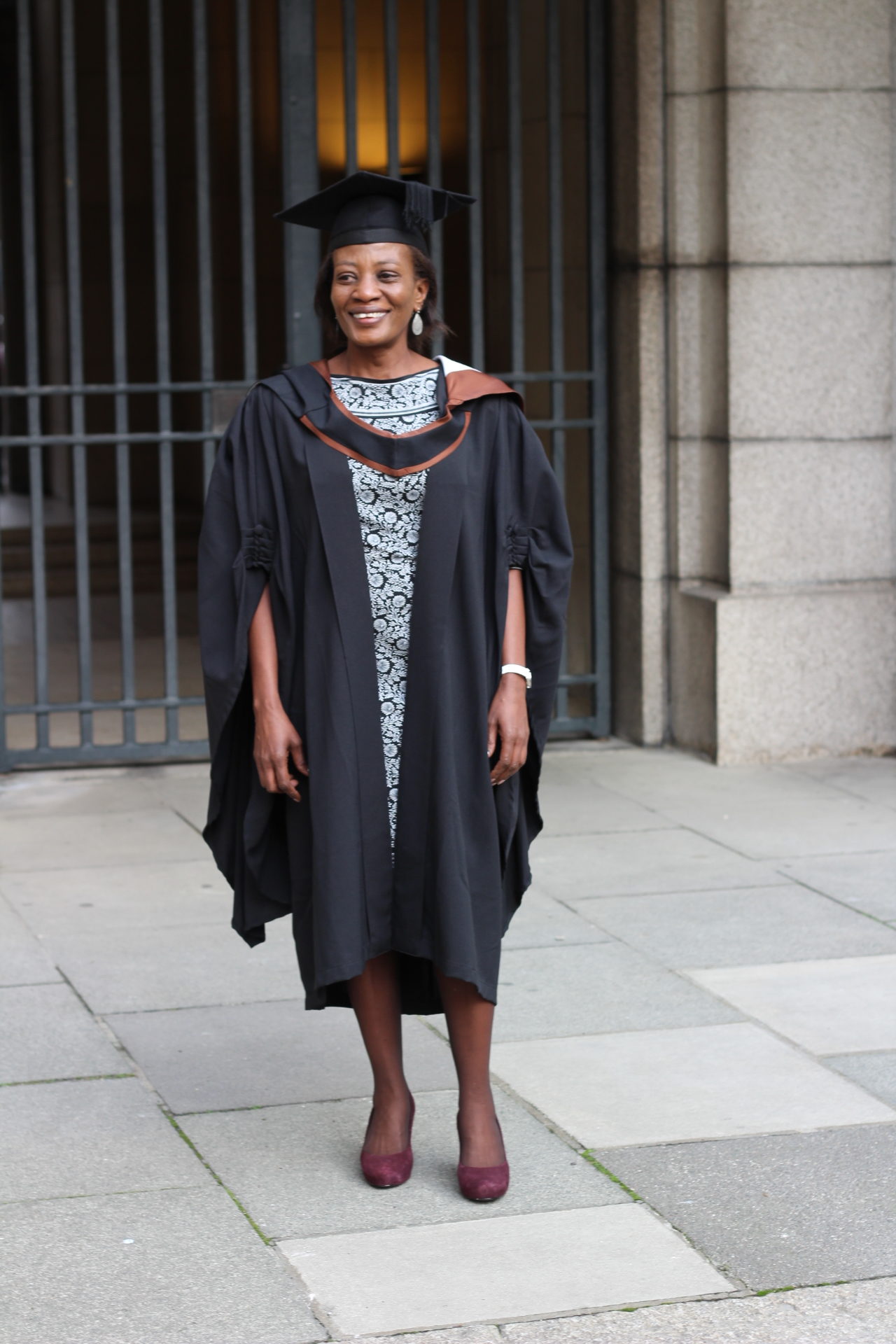Ian McEwan, the best-selling author of over twenty books, came to Birkbeck to discuss the process of adapting a novel into a film with Atonement screenwriter Christopher Hampton and Birkbeck Lecturer Dr Agnes Woolley.

L-R: Christopher Hampton, Agnes Woolley, Ian McEwan
Ian McEwan joined Birkbeck’s students, alumni and wider community to discuss his Booker Prize shortlisted book, Atonement, alongside screenwriter Christopher Hampton, with whom he adapted the title for the big screen. The discussion was mediated by Dr Agnes Woolley, Lecturer in Transnational Literature and Migration Cultures at Birkbeck. Focusing on the collaboration between the writers, they discussed the process of adapting a book for cinema, and the unique challenges and opportunities this brings to storytelling.
Atonement is set in three time periods; 1935 England, Second World War England and France, and present day England. It hinges on the fateful mistake of upper-class Briony, who as a child witnesses – and misinterprets – a series of events which lead her to falsely accuse her family’s housekeeper, Robbie, of raping her cousin, Lola.
“Sometimes powerfully in people’s lives,” explained McEwan, “believing is seeing. It’s part of the reason the police no longer rely on identifications from line-ups. Memory is very malleable.”
Robbie, who is truthfully in love and beginning a relationship with Briony’s sister, Cecila, is imprisoned; and the lives of all three are irreparably damaged by the lie. Following his release, Robbie joins the army, and is seemingly able to reunite with Cecilia prior to fighting in the war. In 1940, Briony visits Cecilia to atone for her actions, while Robbie is home, on leave from the army. Cecilia and Robbie both refuse to forgive Briony, who nonetheless tells them she will try to put things right.

McEwan, an accomplished screenwriter himself, turned down the job of adapting the title for film declaring himself “in a long term sulk” about the process following a particularly excruciating previous experience. This decision, he says, was vindicated when Hampton came on board, who himself said he had become enthralled with the novel while reading it on holiday: “I scarcely left my hotel.”
The ending of Atonement, wherein the reader learns that Briony is the author of the preceding story – and that Cecilia and Robbie were in fact never able to reunite before their premature deaths – was an “overwhelming” challenge from a screenwriting perspective. “Part of the success of the film,” said Hampton, “was that after going through a lot of labyrinths [to tackle this], what we ended up with was much more simple.”
He remembered one possibility they explored involved Vanessa Redgrave, who plays 77 year old Briony, appearing throughout the film observing her ‘characters’ and narrating different parts; but in the end they kept the three-part structure of the book, with the final section seeing Briony’s older self, a successful writer whose health is in decline, explain that the fictionalisation was her atonement: it finally allowed the lovers to be together.
McEwan noted that “the breadth of the imagination in the adaption” was complemented by the “fidelity to the source material.” He added that while he wouldn’t dare to intervene with the filming, there is a certain “chaos” to film sets, and where things are filmed out of sequence, the author can be useful as they “always know what’s going on in the psychology of a character’s head.”
McEwan is one of the most adapted novelists working today, a testament to “how well his novels work as dramas,” according to Hampton. “Even Atonement, which is a very ruminative novel, is very dramatic.”

Before the event, McEwan attended a prize-giving for a creative writing competition at Birkbeck, and kindly presented the awards to the winner: Richard Roper for his short story The Carousel of Progress; and the runners-up, Matthew Bates (Another Language) and Marienna Pope-Weidemann (Dandelion).

The Booker Prize has been the UK’s leading literary award for over 50 years. Every autumn, Birkbeck hosts an evening with a Booker Prize nominee, which gives students, staff and alumni the opportunity to hear from, and pose questions to, a celebrated writer.



